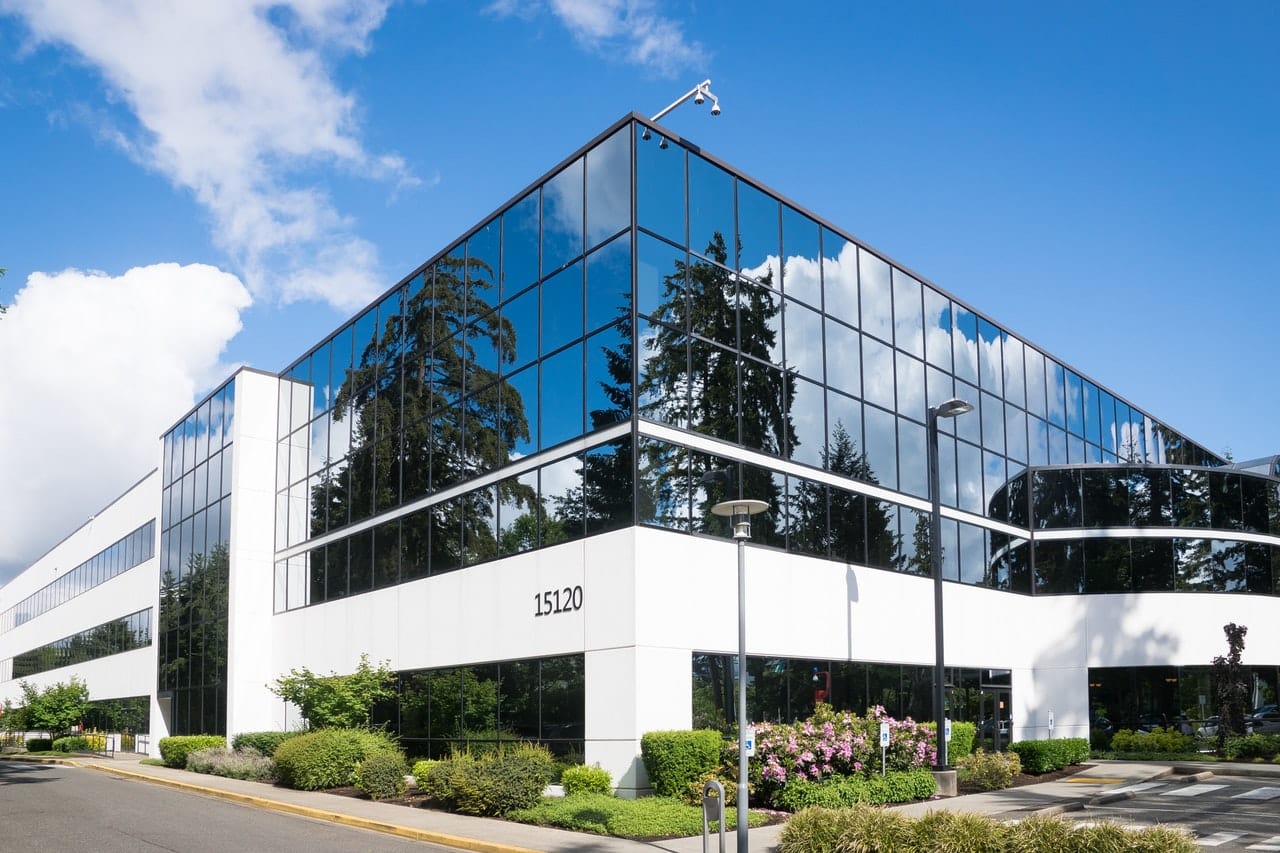Commercial real estate (CRE) has the potential to provide a significant amount of income for investors and brokers. However, there is a lot to know before diving into these investments. All investors can benefit from a few pointers before adding commercial property to their portfolios. With this guide, we will break down what you need to know about commercial real estate, the type of properties, and how to invest in them.
Are you ready to invest in a commercial property? At Millman National Land Services, our team of professionals can help with land surveying, zoning report, and title services for your next investment!
What Is Commercial Real Estate Investing?
A commercial real estate investment is a property leased for retail or business purposes. In some cases, the investment includes the development or purchase of properties that have been designed to house commercial tenants. Unlike real estate investing, a commercial real estate investor will create leases and collect rent from businesses rather than residential tenants.
Commercial real estate investing also includes raw land that you can use for commercial property developments. Several types of commercial properties can be added to an investment portfolio.
Related: Commercial Real Estate Transactions Guide
What Are the 4 Types of Real Estate?
Generally, commercial real estate is a term that includes several kinds of properties. As a rule, commercial real rate properties are used for business purposes. These commercial properties can be categorized into four types:
- Multi-family – apartment complexes and condos
- Office spaces
- Retail
- Industrial
Special purpose commercial real estate properties are also included in these types of investments. These special purpose properties include bowling alleys, daycares, hotels, health care centers, and churches. You can purchase commercial real estate properties for additional cash flow. These properties provide the investor with passive income.
What Should I Know Before Investing in Commercial Real Estate?
With commercial real estate, you can invest in several properties that give you multiple income streams. For example, if a residential tenant stops paying rent, you will lose their income flow. However, you will always have additional income sources to offset those cash flow issues with a multi-unit commercial property. Think of commercial real estate as a more stable investment.
Commercial real estate investment allows you to have a higher income potential. Depending on the property type, you might have a cash flow of hundreds of thousands of dollars.
These investments are different from those residential ones. A commercial real estate investment property puts the property taxes, maintenance, and insurance on the tenants. If the property needs a repair, the tenant is responsible for those costs.
Commercial real estate can be intimidating for new brokers or investors. With the hefty price tag, investors need a larger down payment. As a result, it can be challenging to get a loan for the property.
However, it is easy to get started in commercial real estate investing. As previously mentioned, these properties provide an excellent source of active and passive income.
Related: Types of Commercial Real Estate You Need To Be Familiar With
Passive vs. Active Investments – What’s the Difference?
You will have to decide whether to invest in a passive or active commercial real estate investment. There are a few differences between these types of investment opportunities. With a passive real estate interment, the investor manages or owns the property. The investor’s income is generated in an equity split, preferred return, or dividends.
Real estate investment trusts (REITs) are the easiest ways to invest in commercial real estate. The REITs collect money from several investors to purchase and manage multiple commercial properties with this option. Dividends are paid to the investors. These investments also receive special tax benefits if 90% or more of the income is used as dividends to their investors, making them a great source of reliable income.
Real estate exchange-traded funds (ETF) allow investors to invest in multiple REITs. A fund manager will choose the real estate securities for investment, including various commercial properties. These ETFs help mitigate risk by spreading an investment across several sectors and companies.
Active commercial real estate investments are a bit different. With these investments, the investor manages the properties by owning a part of the investment and carrying in all of the risk and liability. In many cases, active commercial real estate investments produce higher income than passive ones. Investors can earn income in two ways – rental income cash flow or adding value to the party.
What Is the Most Profitable Commercial Real Estate?
If you want profitable commercial real estate, consider investing in properties with the highest number of tenants. These types of properties can include multi-family housing, office spaces, mixed-use buildings, and self-storage facilities. Think about it this way: the more tenants on the property, the more income for your pockets.
Related: What is a Title Commitment?
Buying and Managing Commercial Real Estate Investments
If you want to actively invest in commercial real estate, you need to find, fund, acquire, and manage the properties. You can have a team of other investors, but you will be responsible for the failure or success of the investment.
First, you need to decide which sector to purchase for your investment.
What are the different sectors of commercial real estate? As previously stated, they include commercial apartment buildings, office spaces, retail stores, or industrial buildings. Before purchasing a property, you need to determine the type of commercial real estate property, the demand for your real estate type, and how to invest in that sector.
Once you have identified the sector, take time to target the ideal location. In many cases, you will need to work with a broker. You will want to check out the offering memorandum (OM) that outlines the property’s current performance and the potential income that you can expect from it.
After that, you will want to submit a letter of intent (LOI). This document will outline what you want to purchase and the purchase terms. Remember that the LOI is not binding. If the terms are agreed upon, both parties can move into a formal contract.
If the contract is executed, it is time to secure funding. There are several loan options, such as:
- Conventional loans
- Government loans
- Syndication
- Owner financing
The banks will look at the value of the property, along with reviewing the investor’s business plan, experience, creditworthiness, and net worth.
With any real estate deal, you must inspect the commercial real estate property. The buyer can commission a variety of reports, including:
- Property inspection report
- Phase I environmental survey
- Boundary surveys
The lender orders many inspections. Before you order an inspection or survey, make sure to secure your financing.
Finally, it is time to close on the property and manage the investment. Now you are responsible for hiring management companies, marketing the property, making capital improvements, and finding tenants.
While it seems like a lot of work, investing in commercial real estate can result in big payoffs for your portfolio.
Take Your First Step
Commercial real estate investment doesn’t need to be intimidating. There are plenty of options available; you just need to find the right choice for you.
Do you need a survey for that commercial real estate property? We can facilitate your title service, zoning, or land survey needs at Millman National Land Services.










